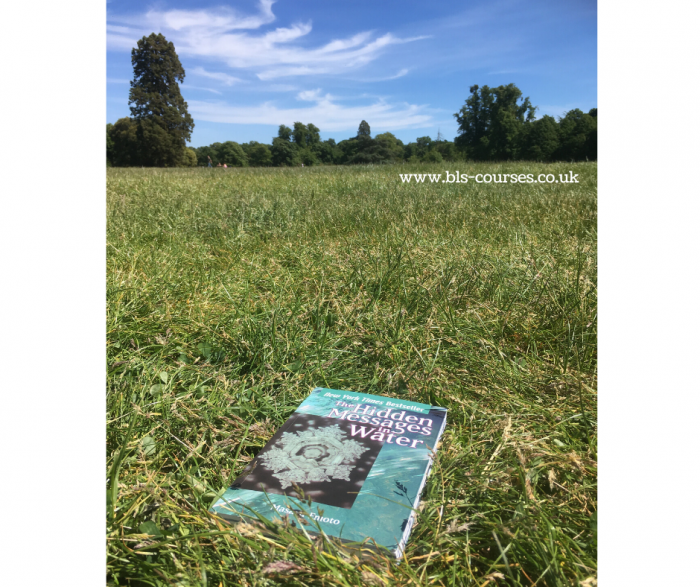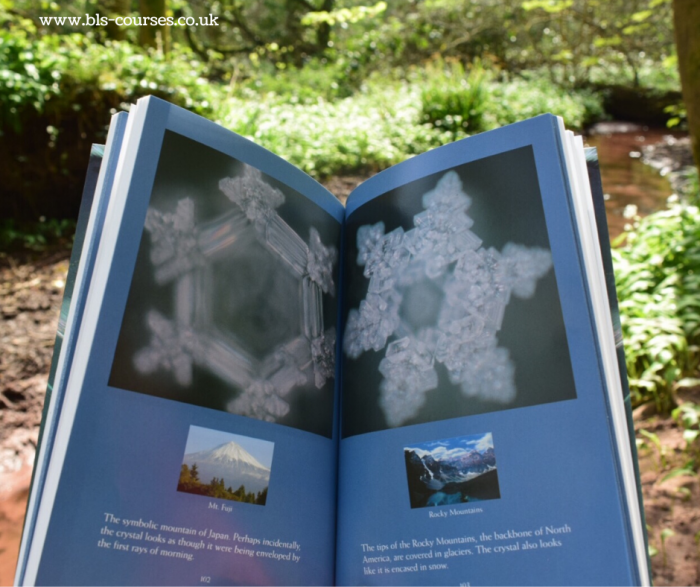What you know is possible in your heart is possible. Masaru Emoto
Today, I’m reviewing an amazing book about water. About water? On a language-related blog? Yes! 🙂 The author is a Japanese scientist who, through his research, discovered some fascinating truths about water. The read may inspire you to travel to Japan or to learn Japanese. Also, the presented knowledge may be transferred to our daily life and help us achieve better results in language learning.
What did the Japanese researcher discover through his research? Through analysing tap water and its crystals (e.g. from Tokyo or London) the pictures showed deformed crystals or didn’t have any crystals at all. Whereas when he analysed water from springs or lakes, there were beautifully formed crystals. But, it’s more than that. He wrote words on water, e.g. love & gratitude or thank you and then the water formed beautiful and complete crystals. After writing stupid and fool, the crystals were dark, incomplete or not formed at all. But the worst results with the crystals were when the water was ignored (interesting, huh?).
What can we take it from these amazing discoveries? That our words and thoughts have power. Whenever we say ‘I can’t do it’, ‘I’m too old’, ‘I’m a slow learner’, ‘I don’t have any language ability’, regardless of wherever that’s true or not, the said words can become our reality. A good exercise could be to watch what we say about ourselves (whether out loud or in our heads) to see what picture we draw of ourselves and what impact it can have on our language learning or, more broadly, on our lives.
The book talks deeper about the subject of water, its healing powers, its links to the beginnings of life on planet Earth, and the inner power of human beings. The book has many pictures of the water crystals which make the read more real and even more fascinating!
What interesting book have you read recently? Do let me know in the comments below.
Kinga Macalla






